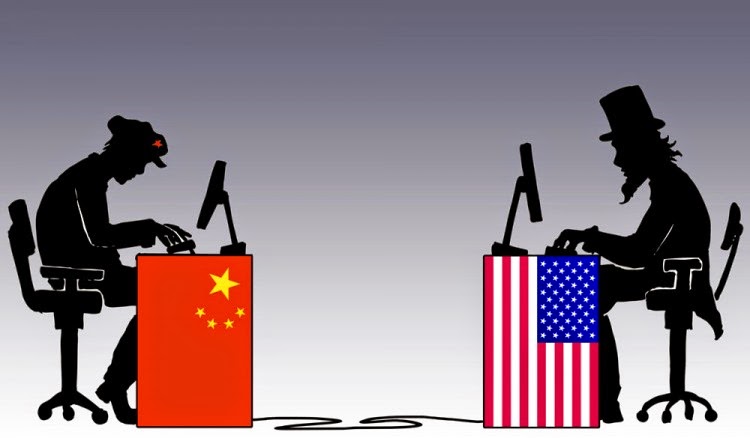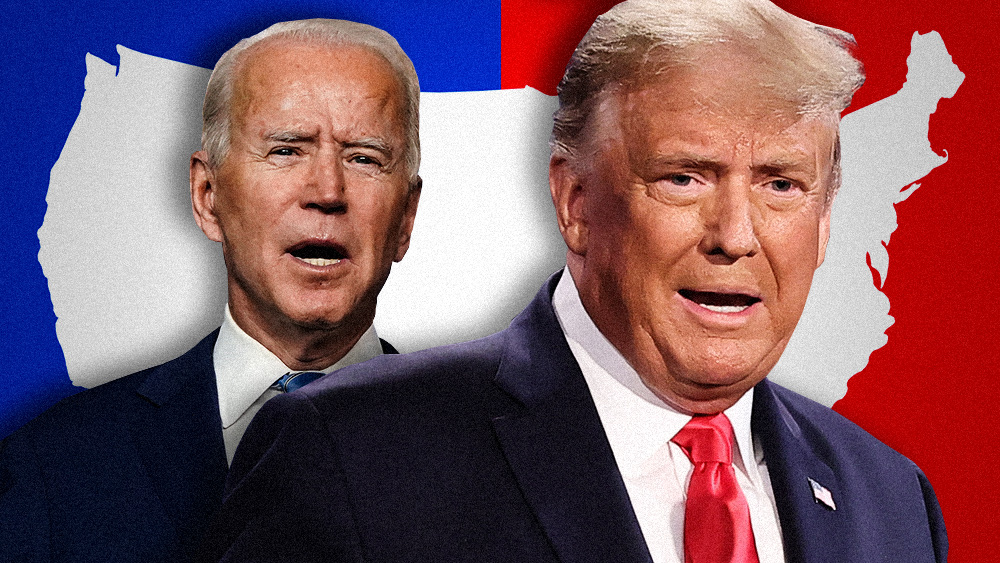FBI warning: Chinese cyberattacks on U.S. infrastructure are increasing at unprecedented scale
03/01/2024 / By Ava Grace

As intelligence chiefs and policymakers gathered for this city’s annual security conference focused on the wars in Ukraine and the Middle East, Federal Bureau of Investigation (FBI) Director Christopher Wray has urged them not to lose sight of the fact that Chinese cyberattacks are a grave threat.
The FBI is “laser-focused” on Chinese efforts to insert malicious software code into computer networks in ways that could disrupt critical U.S. infrastructure, according to the agency’s director Christopher Wray.
Wray said he was acutely concerned about the “pre-positioning” of malware. He said the U.S. recently disrupted a Chinese hacking network known as Volt Typhoon that targeted American infrastructure, including the electricity grid and water supply, and other targets around the world. (Related: More sophisticated Chinese cyberattacks target US firms, government agencies, defense contractors.)
“We’re laser-focused on this as a real threat and we’re working with a lot of partners to try to identify it, anticipate it and disrupt it,” Wray said after attending the Munich Security Conference. “I’m sober and clear-minded about what we’re up against. We’re always going to have to be kind of on the balls of our feet.”
The U.S. has been tracking Chinese pre-positioning operations for well over a decade, but Wray told the security conference that they had reached a “fever pitch.”
Wray said Beijing’s efforts to covertly plant offensive malware inside U.S. critical infrastructure networks are now at “a scale greater than we’d seen before,” an issue he has deemed a defining national security threat.
Citing Volt Typhoon, the name given to the Chinese hacking network that was revealed last year to be lying dormant inside U.S. critical infrastructure, Wray said Beijing-backed actors were prepositioning malware that could be triggered at any moment to disrupt U.S. critical infrastructure.
“It’s the tip of the iceberg … it’s one of many such efforts by the Chinese,” he said on the sidelines of the security conference that has been dominated by questions over Ukraine and the death of Russian opposition leader Alexei Navalny. China, he had earlier told delegates, is increasingly inserting “offensive weapons within our critical infrastructure poised to attack whenever Beijing decides the time is right.”
The FBI chief declined to elaborate on what other critical infrastructure had been targeted, stressing that the Bureau had “a lot of work underway.”
Latest public warnings on China
Wray’s comments are the latest in a string of public warnings by senior Biden administration officials to animate their fears about China’s advanced and well-resourced hacking prowess. Western intelligence officials say its scale and sophistication have accelerated over the past decade. Officials have grown particularly alarmed at Beijing’s interest in infiltrating U.S. critical infrastructure networks, planting malware inside U.S. computer systems responsible for everything from safe drinking water to aviation traffic so it could detonate, at a moment’s notice, damaging cyberattacks during a conflict.
The director has been prodding foreign governments in Europe and Asia to increase resources on the threat of Chinese hacking campaigns, particularly protecting critical infrastructure. He described the response as gratifying and a step change from several years ago when some were still skeptical about the Chinese cyber threat.
In California, Wray met with counterparts from the Five Eyes intelligence community – which encompasses the U.S., Australia, New Zealand, Canada and the U.K. – to share respective strategies for cyber defense; he has also traveled to Malaysia and India to discuss China’s hacking campaign with authorities in both countries.
“I am seeing more from Europe,” he said. “We’re laser-focused on this as a real threat and we’re working with a lot of partners to try to identify it, anticipate it and disrupt it.”
The Netherlands’ spy agencies said earlier this month that Chinese hackers had used malware to gain access to a Dutch military network last year. The agency, considered to have one of Europe’s top cyber capabilities, said it made the rare disclosure to show the scale of the threat and reduce the stigma of being targeted so allied governments can better pool knowledge.
Beijing routinely denies any accusations of cyberattacks and espionage linked to or backed by the Chinese state and has accused the U.S. of mounting cyberattacks. But evidence of a Chinese state-backed program has been building in recent years, and the U.S. has charged a string of officers from the People’s Liberation Army cyber units with stealing secrets.
Watch this video of Wray revealing that Chinese-backed hackers were embedded in American telecommunications companies.
This video is from the Galactic Storm channel on Brighteon.com.
More related stories:
Sources include:
Submit a correction >>
Tagged Under:
big government, China, communist China, computing, cyber terrorism, cyber war, cyberattacks, deep state, FBI, Federal Bureau of Investigation, Glitch, hacking, infrastructure, national security, Spygate, WWIII
This article may contain statements that reflect the opinion of the author
RECENT NEWS & ARTICLES
COPYRIGHT © 2017 NATIONAL SECURITY NEWS





















